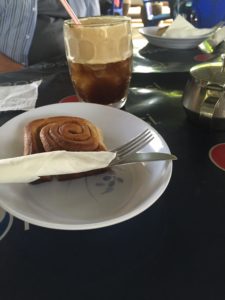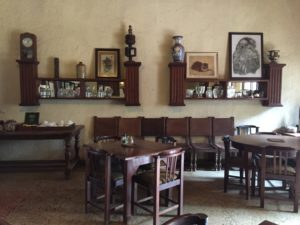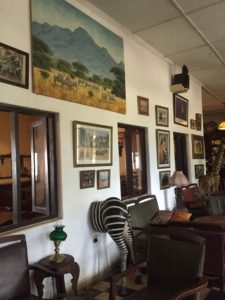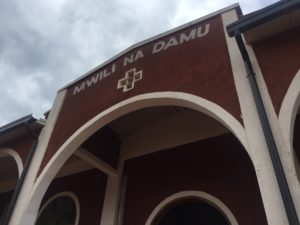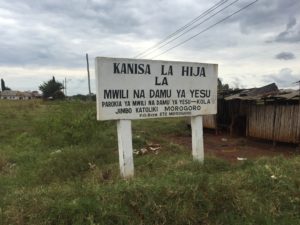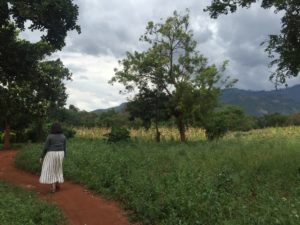This week has been full of Swahili studying! As I’ve delved deeper into grammar concepts, I’m grappling to understand the concepts at the speed we move. It has been difficult, but also exciting to conceptually—I’m not yet there in conversation—have reached a point where I can’t equate what I’m learning to anything I’ve learned before. What has been the most trying for me is verb construction. The Swahili verb can contain far more within in it than an English verb does. Besides the tense, the subject and object of the sentence, relative particles, and a prefix indicating “when” can all be denoted within the verb. The root verb can be changed in prepositional, causative, passive, reciprocal, and stative forms depending upon the suffix. I find this concept really logical, but it also makes keeping up with vocabulary difficult when a verb has a negative subject prefix and is in prepositional-passive form! It has been great to work through these concepts, but I think I am going to focus more on conversation practice with my teacher the next two weeks.
This weekend has been a pleasant, and needed, break from verb constructions! On Saturday I traveled into town again with some of the other students. We restaurant-hopped a bit, first finding a coffee shop before grabbing lunch. I don’t drink coffee, but everyone else was thrilled to have non-instant coffee. It was relaxing to sit and read at the coffee shop for a while. Then we made our way to a great restaurant at the New Acropol Hotel. The hotel is owned by a British woman and has a definite colonial feel. That sounds like an odd description, but many tourist spots in Kenya and Tanzania that were opened during colonial times are decorated in similar manners. This gave the restaurant a particular ambience, and I loved looking at the different artwork throughout the building. The food was delicious and I enjoyed a pizza after hardly eating cheese for the last month!
This morning, I went to mass with another student. We walked about twenty minutes to the Church, arriving at 8:50 for the 9:00 service. When we arrived, the 7:00 service was still going on! Everyone at the Church was wonderful, answering questions and welcoming us. Mass was difficult to understand, especially with noise from the generator that went on throughout the service since the power had gone out. One of the really wonderful things about the Catholic mass, though, is its universality. I was able to follow and pray along with the parishioners because I knew where we were in the mass, even though I didn’t know what exactly was being said. If I’d had a little more foresight, I also could’ve looked up the readings for the day. It’s a pretty special feeling of community to know that during mass, for the most part, all Catholics around the world are saying the same prayers and sharing in the same service. I think attending church in another language can be discouraging in less structured environments, and know I was a bit discouraged from attending the Lutheran Swahili service on campus, because of the language barrier. However, that disappears a lot when you have this universal structure. I had never really appreciated that before about Catholicism. However, earlier I said “for the most part” because the Swahili service definitely had its differences from masses I attend at home. I knew that it would be longer, but I had guessed that the homily would be much longer. In fact, the homily was typical to the length of a homily in the states. There was a lot more singing and a few different moments of shared prayer. Following mass, the other student who is Korean and I discussed the service while comparing it to ours at home. Stella’s church in Korea seemed to be much more similar to mass in the states and the points the Swahili mass diverged were similar for us. I think this has been my favorite cultural experience since I’ve been in Morogoro.
